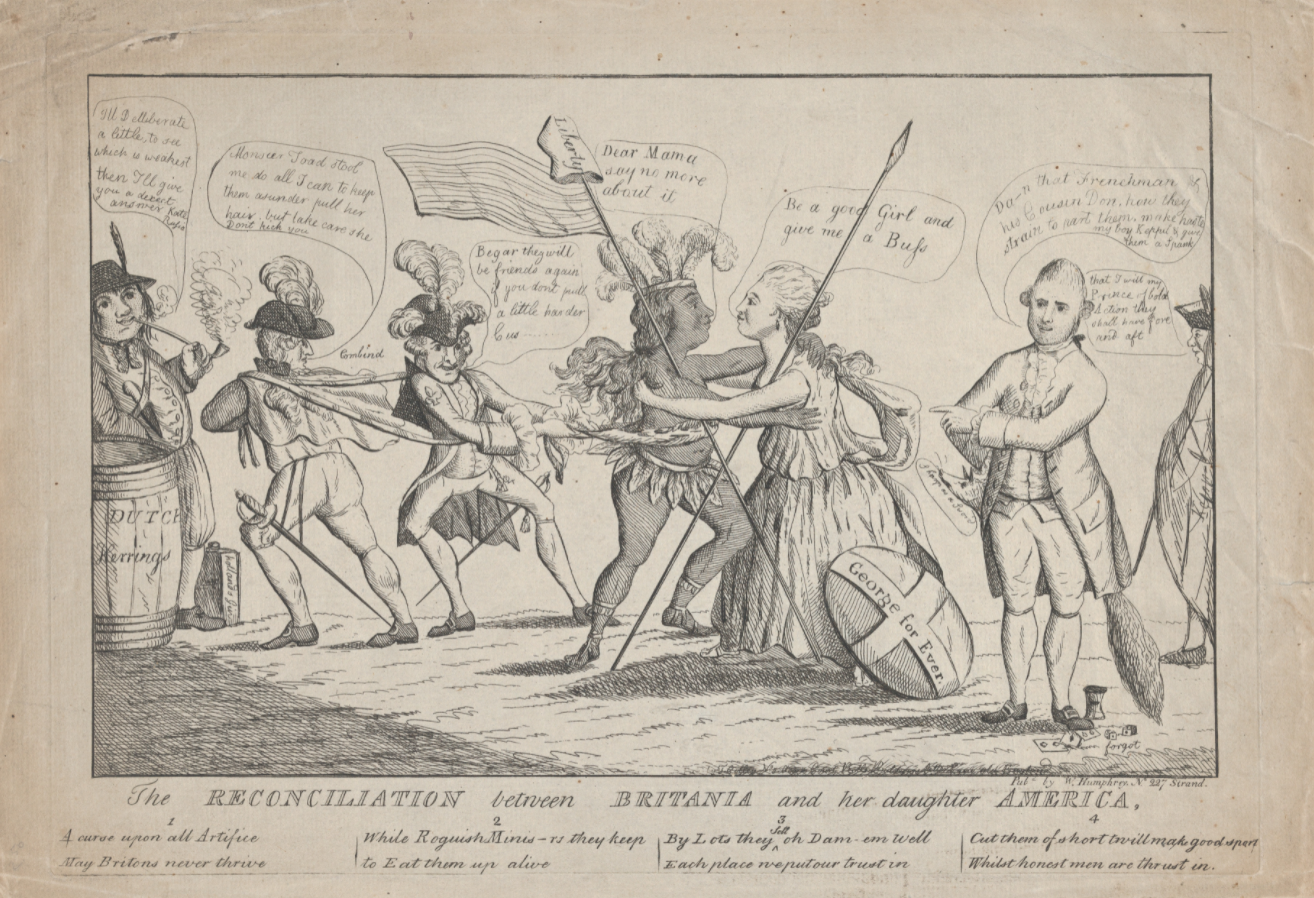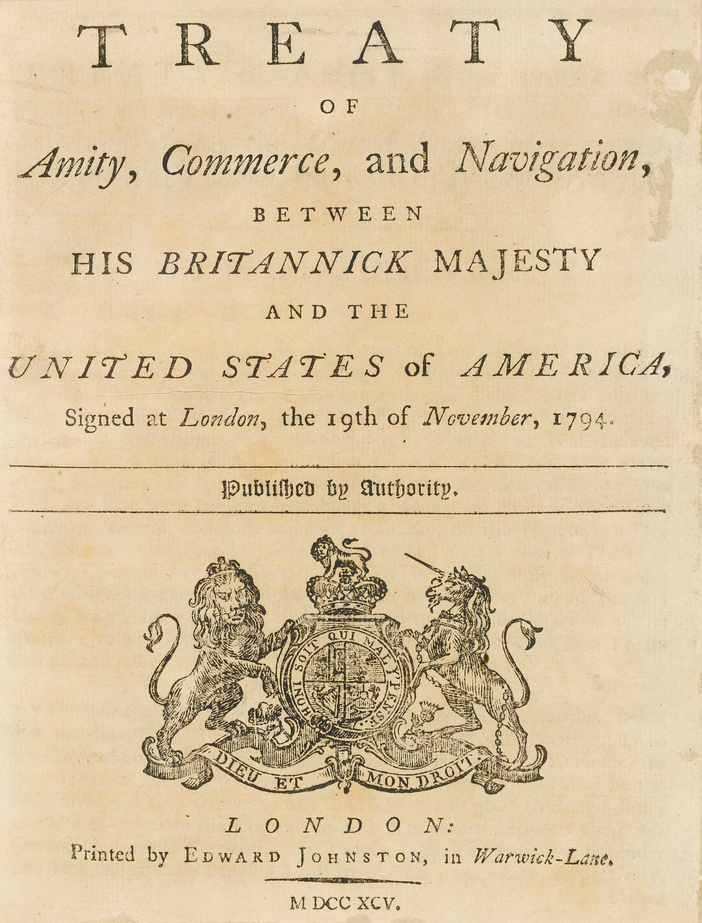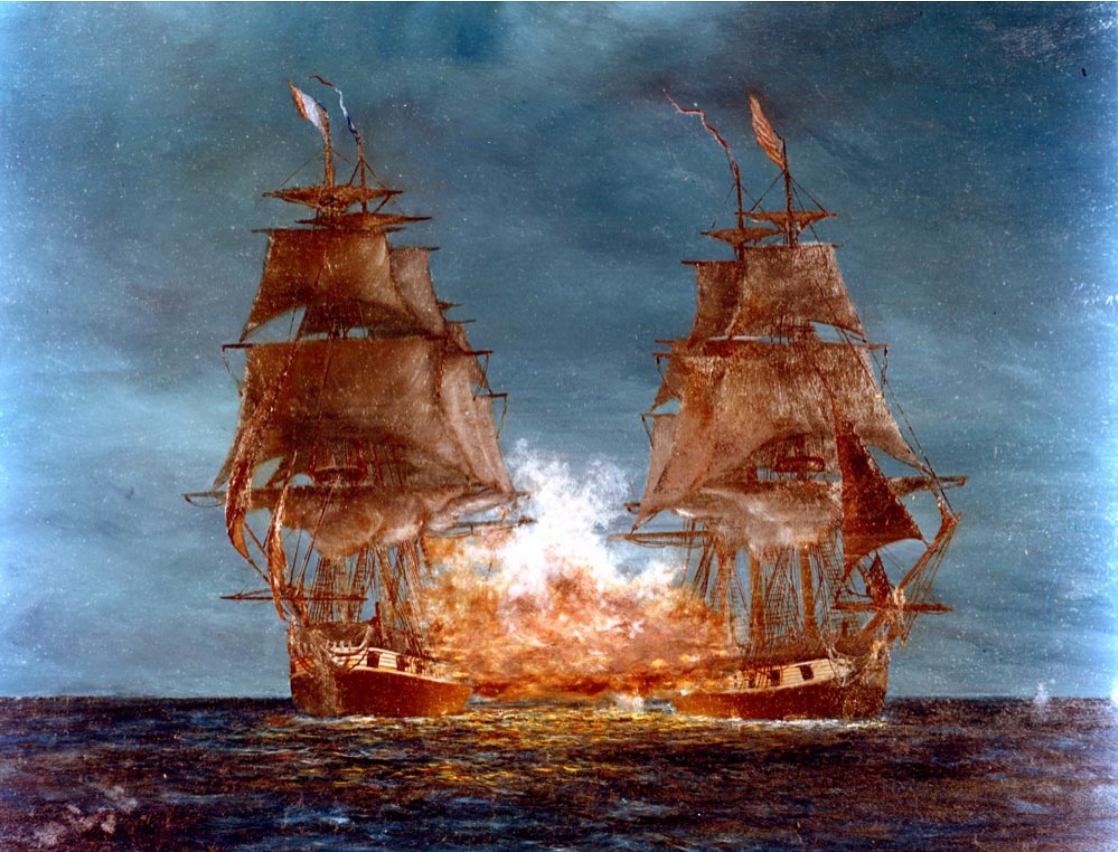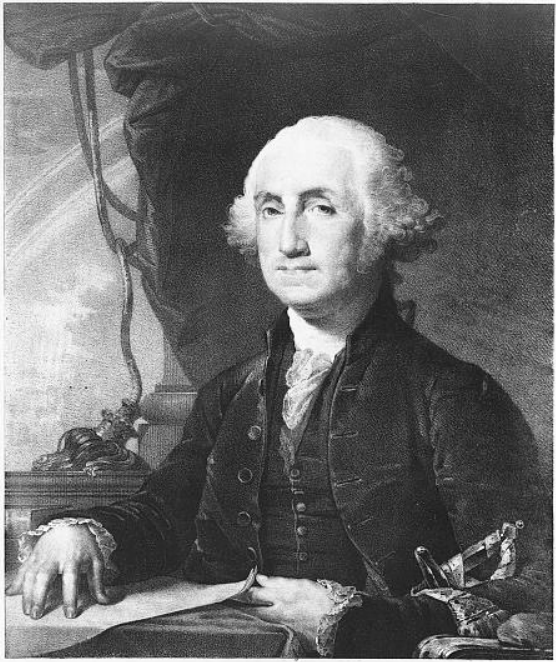“You ask what I think on the expediency of encouraging our states to be commercial? [...] Our people have a decided taste for navigation and commerce. [...] We wish to do it by throwing open all the doors of commerce and knocking off its shackles."
~ Thomas Jefferson to Gysbert K. van Hogendorp, October 13, 1785, Founders Online
Unraveling an Entangling Alliance
After 1783, America turned eagerly to the business of making money through trade.
The Attraction of British Trade

The Reconciliation Between Britannia and Her Daughter America by Thomas Colley, 1782, courtesy of the MET
Britain was America's natural trading partner.
“Even as early as 1786 the French ministry was advised by its envoys at Philadelphia that the proportion of English commerce with the United States to French was eight to one. It was probable that this balance on Britain's side, so they argued, would be increased as time moved on, not merely because the staples and industries of Britain and the United States supplemented each other, but because of national kindred elements of religion, of law, of language, of history, of habit.”
~ Wharton, I, 342
Growing Estrangement from France
France's American victory was short-lived. France’s debts had skyrocketed. Ideas of liberty and democracy had roiled French society.
The 1789 Revolution ended monarchy. King Louis was guillotined.

The Storming of the Bastille by Jean-Pierre Houël, 1789, courtesy of the British National Archives
By 1793, Revolutionary France was at war with Britain. Were the 1778 treaties still binding? Should America side with France?
These fierce debates created political factions.
Cabinet Battle #2, from Hamilton, An American Musical by Lin-Manuel Miranda (2015). Filmed recording of the original Broadway Performance, Disney+ (2020)
George Washington issued a Neutrality Proclamation to ease tensions.
“[Washington’s] insistence on neutrality in foreign quarrels set a key precedent, as did his insistence that the power to make such a determination be lodged in the presidency [rather than in Congress].” ~ Stephen Knott
Diplomatic Break-Up
Jay's Treaty with Britain (1794) was considered a betrayal by the French. Diplomatic tensions escalated into the undeclared Quasi-War.

Treaty of Amity, Commerce, and Navigation (Jay Treaty), 1794, courtesy of The Gilder Lehrman Institute of American History

Quasi-War with France, 1798-1800, by Arthur Disney, 1800, courtesy of the National Museum of the U.S. Navy
The 1800 peace negotiations terminated the Franco-American Alliance. The commercial agreement signed in its stead reflected America's diplomatic priorities.
Isolationism?
A cautionary tale against lasting alliances, the painful break-up with France pushed Americans towards chosen international engagement.
“’Tis our true policy to steer clear of permanent Alliances, with any portion of the foreign world
– So far, I mean, as we are now at liberty to do it – for let me not be understood as capable of patronising infidelity to existing engagements.”
~ George Washington, Farewell Address, September 19, 1796, Founders Online

George Washington, first president of the United States, by Gilbert Stuart, courtesy of Library of Congress
Though ending on a sour note, the 1778 Alliance was formative. It became the foundation of American diplomacy.
“Peace, commerce, and honest friendship with all nations, entangling alliances with none”
~ Thomas Jefferson, First Inaugural Address, March 4, 1801, Founders Online